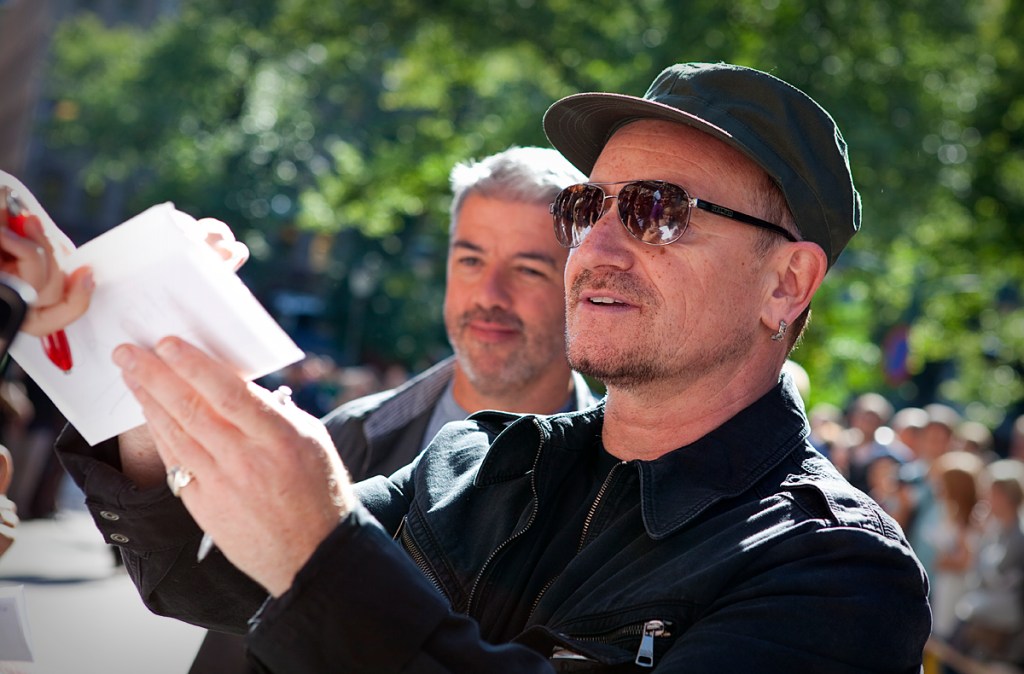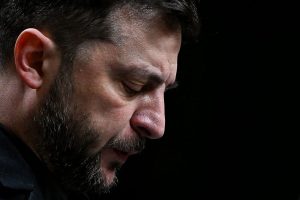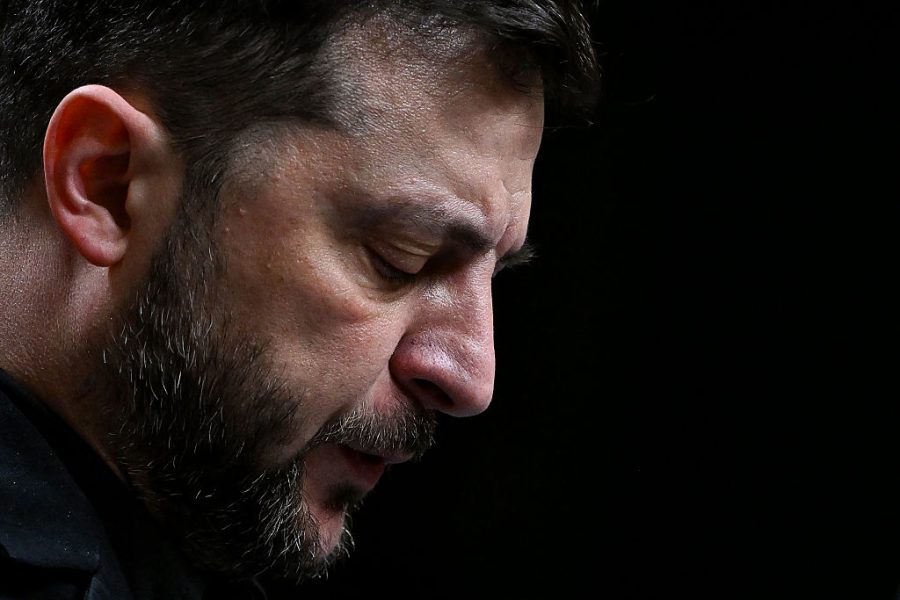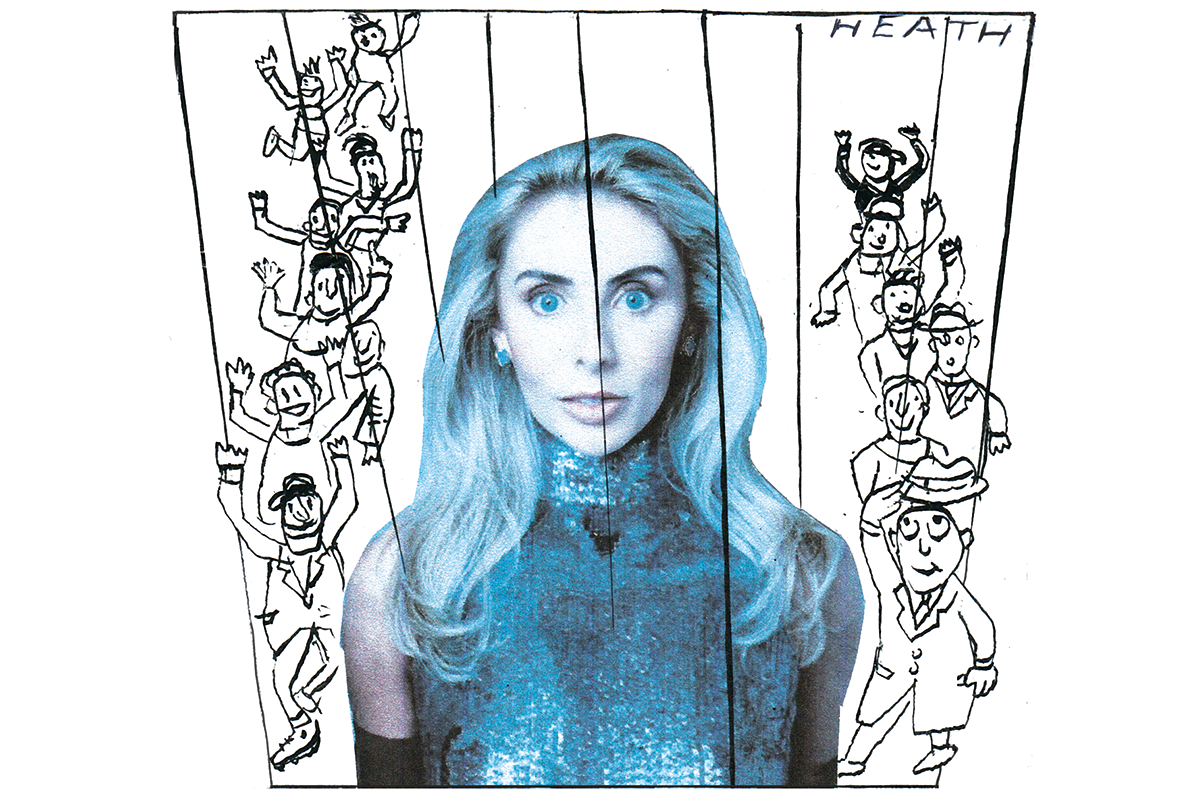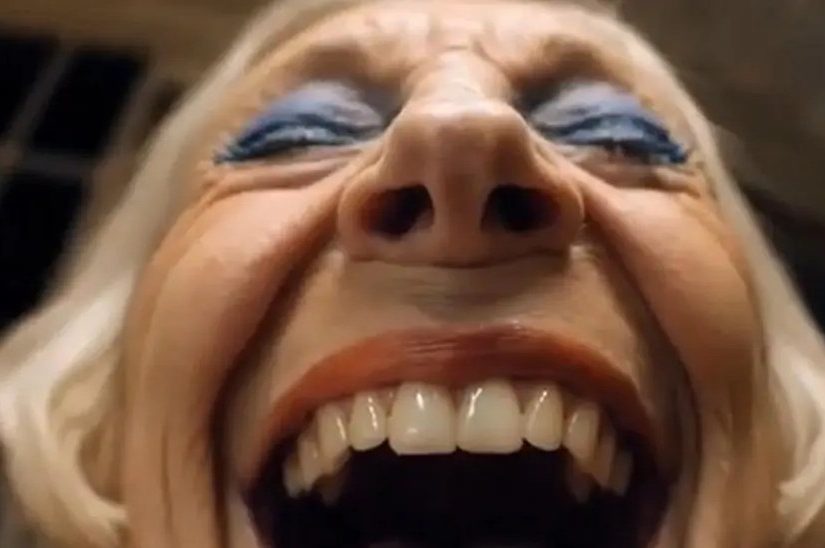Thursday was Saint Patrick’s Day and Nancy Pelosi got into the spirit by reading an earnest but — how to say this — less than polished poem by Bono (out of charity, I’m gonna assume he was drunk) calling Volodymyr Zelensky a saint. It reads:
Oh Saint Patrick he drove out the snakes
With his prayers but that’s not all it takes
For the snake symbolizes
An evil that rises
And hides in your heart
As it breaks
And the evil has risen my friends
From the darkness that lives in some men
But in sorrow and fear
That’s when saints can appear
To drive out those old snakes once again
And they struggle for us to be free
From the psycho in this human family
Ireland’s sorrow and pain
Is now the Ukraine
And Saint Patrick’s name now Zelensky
I appreciate the sentiment if not the ambiguous punctuation, mixed metaphors and corniness. Pelosi’s introduction and reading was also less than polished. She starts with “Bono has been a very Irish part of our lives.” It’s downhill from there. Then she introduces Riverdance.
In other news
Arwa Mahdawi explains what she learned by reading children’s books to her kids: celebrities should stop writing them. “By my calculations, 93.2 percent of celebrities, from Whoopi Goldberg to Chelsea Clinton to Jimmy Fallon to George Galloway(!!) to Kelly Clarkson to Mike Pence’s rabbit have authored a kids’ book. Most of these are either terrible or terribly unimaginative.”
C.S Lewis’s medieval mind: “Modern readers are often shocked by Lewis’s aversion to cars and newspapers. And yet, Baxter explains, behind Lewis’s ‘irascible, curmudgeonly lamentations about newspapers and cars stands a well-thought-out conviction that the whole world picture had changed, from the slow, contemplative, symphonic world … to the world of speed, bustle, and machine.’ The rise of the machine may have freed us from laborious chores, but it had social, spiritual, and psychological repercussions that altered our very view of reality.”
David Orr reviews Brad Leihauser’s Rhyme’s Rooms: The Architecture of Poetry: “What we have here isn’t a professor talking about versification for an audience of students, but a poet talking in detail about technical aspects of poems for an audience of — well, who exactly? Leithauser says that he is writing for ‘the reader who loves words and literature but maybe feels some trepidation, and a little nervous resentment, as well as various unvoiced cravings, on confronting a poem on a page.’ This describes a fairly large chunk of humanity, so how might we describe that ideal reader more specifically? What is this reader actually like?”
John Wilson reviews Jeremy Black’s The Importance of Being Poirot: “Jeremy Black is an almost unbelievably prolific historian. He is best known for his work on military subjects, but he ranges more widely as well. In the last several months alone, in addition to the book on Poirot, he has published A Short History of War and The French Revolutionary and Napoleonic Wars: Strategies for a World War. Unsurprisingly, in The Importance of Being Poirot he emphasizes the effect of the two world wars on Christie and her British contemporaries.”
The fall of Robespierre: “Robespierre had achieved national prominence in the winter of 1792-93, when he led the Montagnards in making the case for regicide. In 1790, he had coined what would prove the enduring motto of the Revolution — liberté, égalité, fraternité — and now he sealed the king’s fate with a maxim: ‘Louis must die so that the republic might live.’ When the Convention was stormed six months later, he exhorted the people of Paris to take up arms ‘against all corrupt deputies’, calling it a ‘moral insurrection’. With his diminutive stature (he was five foot three), awkward manner (he avoided eye contact and suffered from nervous tics in his neck, shoulders, eyelids and hands), unimpressive appearance (pointy features, hooded eyes and sallow, pockmarked skin) and cold, priggish disposition (more than one critic likened him to a priest), Robespierre was an unlikely revolutionary hero.”
The joy of the stroll: “Synonyms for the verb ‘to walk’ are plentiful — promenade, hike and trudge, amble and ramble. Where My Feet Fall, a new collection of essays both sprightly and ruminative, illustrates all these ambulatory attitudes and more, exploring the delights — and challenges — of that most essential of human activities, the placing of one foot in front of the other. The book is edited by veteran radio producer Duncan Minshull, and features contributions from some appropriately sturdy literary names, among them Richard Ford, Kamila Shamsie and Patrick Gale. Tasked with writing about a particular walk, the twenty writers were given a choice: revisit the old or chronicle the new.”



